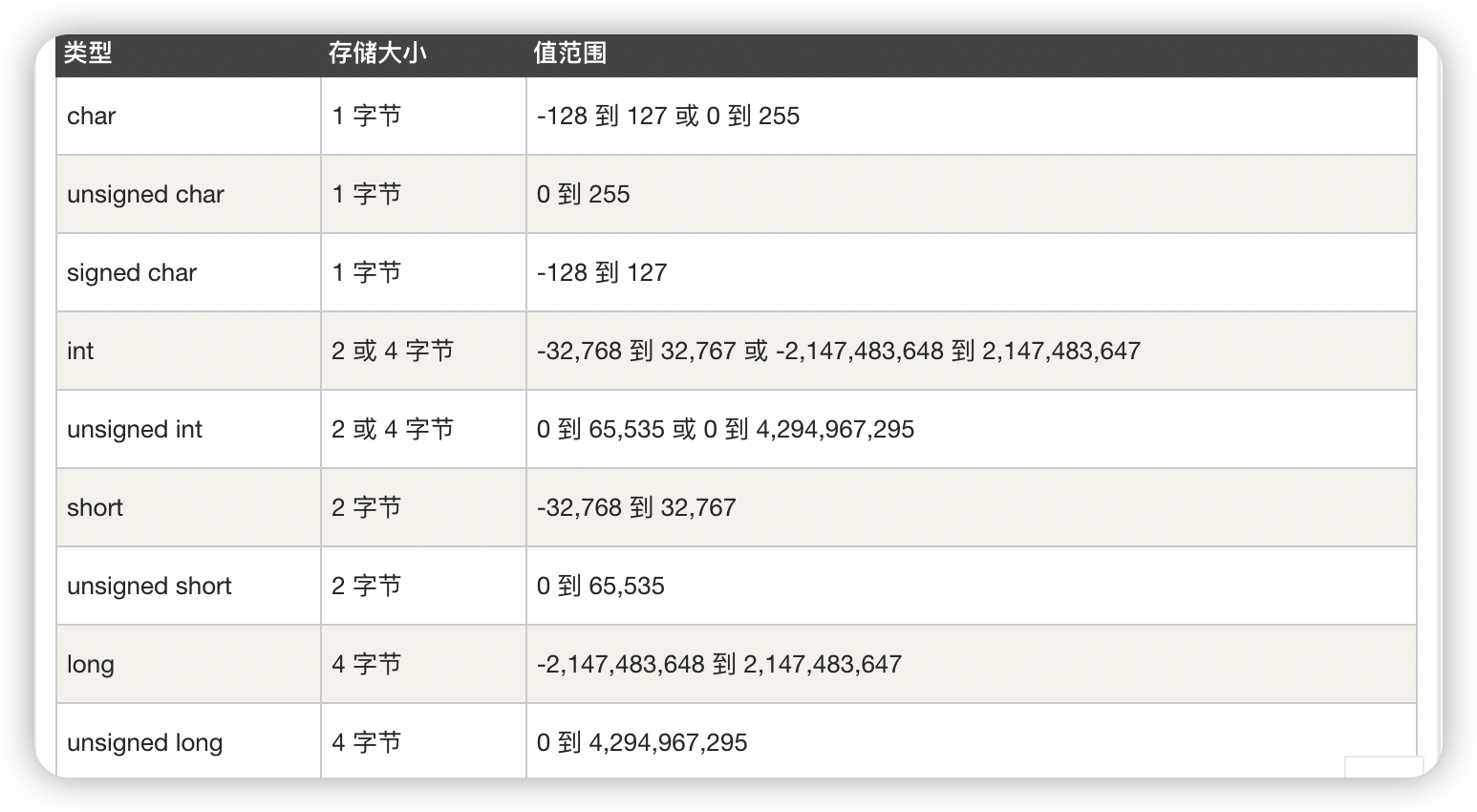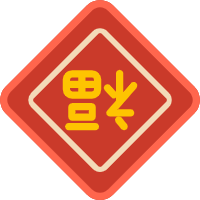C 1
C程序结构
1.Hello World 例子
#include<stdio.h>//预处理器指令
int main()
{
/**/
printf("Hello world");//
return 0;
}
数据类型
(菜鸟教程截图,侵删致谢)
1.整数类型

⚠️ 为了得到某个类型或某个变量在特定平台上的准确大小,可以使用sizeof(type),得到存储字节的大小;
<!—hexoPostRenderEscape:
#include <stdio.h>include <limits.h>
int main()
{
printf("int 存储大小 : %lu \n", sizeof(int));
return 0;
}</code></pre>:hexoPostRenderEscape—>
2.浮点数类型

3.void类型

C变量
#include <stdio.h>
// 函数外定义变量 x 和 y
int x;
int y;
int addtwonum()
{
// 函数内声明变量 x 和 y 为外部变量
extern int x;
extern int y;
// 给外部变量(全局变量)x 和 y 赋值
x = 1;
y = 2;
return x+y;
}
int main()
{
int result;
// 调用函数 addtwonum
result = addtwonum();
printf("result 为: %d",result);
return 0;
}
⚠️ 如果需要在一个源文件中引用另外一个源文件中定义的变量,我们只需在引用的文件中将变量加上 extern 关键字的声明即可。
C常量
1.定义常量
使用#define
#define wiight 55使用const
const int var=5;C存储类
想见菜鸟教程:https://www.runoob.com/cprogramming/c-storage-classes.html
C运算符
⚠️ 前++和后++
前++ :先自加1再运算
后++ :先运算再自加1
⚠️ — 同理
C判断
1.判断语句
if
if else
嵌套if
switch
嵌套switch
2.三元运算符
? :
C循环
1.循环类型
while
for
do while
嵌套循环
2.循环控制语句
break
continue
goto
C作用域
https://www.runoob.com/cprogramming/c-scope-rules.html
C数组
1.声明数组
type arrayname [ arraysize];
2.初始化数组
double balabce[5]={100.0,2.0,3.4,7.0,50.0};
C枚举
#include <stdio.h>
enum DAY
{
MON=1, TUE, WED, THU, FRI, SAT, SUN
} day;
int main()
{
// 遍历枚举元素
for (day = MON; day <= SUN; day++) {
printf("枚举元素:%d \n", day);
}
}C 指针
1.指针
https://www.runoob.com/cprogramming/c-pointers.html
2.函数指针
https://www.runoob.com/cprogramming/c-fun-pointer-callback.html








